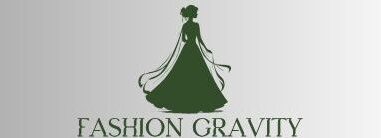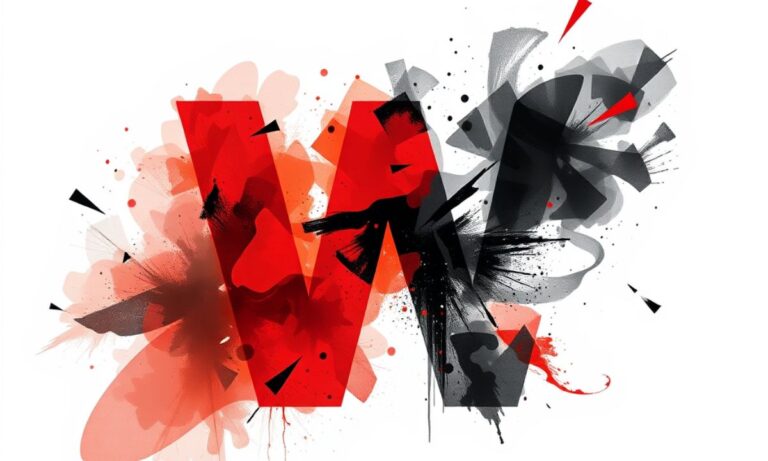The letter W hosts an impressive collection of negative words that powerfully express disapproval, criticism, and unpleasant qualities.
From wicked words that describe malicious intent to whiny vocabulary that captures irritating complaints, mastering these negative W-words enhances your descriptive language capabilities and strengthens your communication skills.
Whether you’re crafting compelling content, preparing an impactful presentation, or simply expanding your vocabulary, this comprehensive collection of wayward terminology and wearisome language will equip you with precise expressions for every situation.
Wicked, Whiny, Wounded
The letter W presents a wealth of words with negative connotations that can precisely articulate criticism and disapproval.
Words like “wicked” pack powerful emotional impact when describing malevolent behavior or morally corrupt characters.
The world of wizardry and witchcraft terminology features prominently in W-words, reflecting historical fears and superstitions.
From the infamous witch hunt history of Salem to modern Wicca related vocabulary, these terms carry cultural weight.
Words like “wounded” and “whiny” effectively capture emotional states, while “wayward” perfectly describes deviation from expected paths. These expressions allow writers and speakers to convey specific negative qualities with remarkable precision.
Negative W Words To Describe A Person Or A Thing
When seeking to accurately describe negative qualities in people or objects, W-words offer exceptional variety and specificity.
Warlike words such as “warlike” and “warring” effectively convey aggressive characteristics, while withdrawn descriptors like “withdrawn” and “withholding” capture emotional distance.
Terms like “worthless” and “wretched” deliver powerful criticism of value or quality. Wearisome language like “wearisome” and “wearying” perfectly describes things that cause fatigue or boredom.
Words such as “woeful” and “woebegone” express deep sadness or misfortune.
For physical descriptions, terms like “wrinkled,” “worn,” and “weathered” effectively communicate deterioration.
These negative W-words provide precise language tools for conveying criticism, disappointment, or negative assessment in various contexts.
- Wacky
- Waggish
- Wailful
- Wan
- Wandering
- Warlike
- Wary
- Wasteful
- Weak
- Weakened
- Weary
- Weaselly
- Weathered
- Weedy
- Weird
- Wet
- Wheedling
- Whiny
- Whirling
- Wicked
- Wild
- Willful
- Wimpy
- Winding
- Windy
- Wistful
- Withdrawn
- Woebegone
- Woeful
- Wolfish
- Wooden
- Woefully
- Worthless
- Wounding
- Worn
- Worrisome
- Wounded
- Wretched
- Wrong
- Wrongheaded
Negative Adjectives That Start With W
The arsenal of negative W adjectives offers remarkable precision for describing undesirable qualities. Wrathful vocabulary like “wrathful” and “wroth” effectively conveys intense anger or fury.
Wimpy expressions such as “wimpy” and “weak-willed” describe lack of courage or determination. Wasted vocabulary including “wasted” and “wasteful” highlights inefficiency or squandered resources.
Words like “warped,” “wayward,” and “wrong” effectively describe deviation from normal or expected conditions. Wary adjectives such as “wary” and “watchful” convey suspicion or caution.
Weakened descriptors including “weakened” and “wavering” effectively communicate diminished strength or resolve.
These precise negative adjectives enable speakers and writers to paint vivid pictures of undesirable qualities with remarkable accuracy and emotional impact.
- Wacky
- Wailful
- Wan
- Wandering
- Warlike
- Wasteful
- Weak
- Weakened
- Weary
- Weaselly
- Weathered
- Weedy
- Weird
- Wet
- Wheedling
- Whiny
- Wicked
- Wild
- Willful
- Wimpy
- Windy
- Wistful
- Withdrawn
- Woebegone
- Woeful
- Wolfish
- Wooden
- Worthless
- Worrisome
- Wretched
Sad And Depressing Words That Start With W
The emotional landscape of sadness finds powerful expression through W-words that capture nuanced feelings of despair and melancholy.
Woebegone terminology like “woebegone” and “woeful” effectively conveys profound sadness or misfortune.
Weepy language such as “weepy” and “wailing” describes tearful expressions of grief. Words like “wistful” and “wishful” capture longing and regret with remarkable precision.
Worried expressions including “worried” and “wrought” effectively communicate anxiety and distress. Terms like “waning” and “withering” powerfully describe decline or deterioration.
The word “wounded” perfectly captures emotional or psychological hurt. These sad and depressing W-words provide speakers and writers with precise vocabulary to articulate the complex emotional experiences of grief, loss, and melancholy.
- Wailful
- Wan
- Wandering
- Wane
- War-torn
- Weakened
- Weaken
- Wearied
- Weary
- Weep
- Weeping
- Woebegone
- Woeful
- Worn
- Wither
- Withered
- Withdrawn
- Wistful
- Wounded
- Wounding
- Worthless
- Wracked
- Wrathful
- Wretched
- Wrecked
- Worry
- Worried
- Worrisome
- Waste
- Wasted
- Wasting
- Waning
- Weak
- Weakening
- Wariness
- Withdraw
- Woefully
- Withering
- Wordless
- Weakenings
- Wound
- Wronged
- Wrongdoing
- Wrongs
- Wearisome
- Weariness
- Weepingly
- Woefulness
- Wayward
- Wandersome
- Wallflower
- Wintry
- Winded
- Wistfulness
- Wastefulness
- Wayworn
- Weepingness
- Weighty
- Warped
- Wilted
Negative Adverbs That Begin With The Letter W
Negative adverbs starting with W provide crucial descriptive power by modifying how actions are performed or qualities expressed. Words like “woefully” and “wretchedly” intensify the negative qualities they describe.
“Weakly” and “wanly” effectively communicate lack of strength or vigor in actions. “Wildly” describes erratic or uncontrolled manner, while “wistfully” captures actions tinged with longing or regret. “Wrongfully” and “wickedly” express moral judgment about actions.
“Wearily” perfectly describes actions performed with fatigue or reluctance. “Wastefully” highlights inefficient use of resources.
These negative adverbs enable precise communication about the manner, intensity, or quality of actions, adding crucial descriptive depth to expressions of negativity and helping writers and speakers achieve greater specificity in their language.
- Weakly
- Wearily
- Woefully
- Wrongly
- Wastefully
- Wantonly
- Wildly
- Willfully
- Wretchedly
- Warily
- Wrongheadedly
- Wrathfully
- Wanderingly
- Wistfully
- Weepingly
- Witheringly
- Wordlessly
- Wearisomely
- Worthlessly
- Windily
- Woundingly
- Withdrawnly
- Wanly
- Waveringly
- Wincingly
- Whiningly
- Wheedlingly
- Wastefully
- Waywardly
- Wolfishly
- Woebegonely
- Withholdingly
- Wrongfully
- Wrinklingly
- Wearingly
- Weaselly
- Wonderingly (in a confused, not positive sense)
- Wobblingly
- Wiltedly
- Wrigglingly
- Weakeningly
- Wintrily
- Withholdingly
- Waningly
- Worseningly
- Withdrawingly
- Writhingly
- Wornly
- Warpedly
- Worryingly
- Wasteworthily
- Woefulheartedly
- Waylaidly
- War-tornly
- Weightily (emotionally burdensome sense)
- Wickedly
- Wrongmindedly
- Wolfishly
- Wildlingly
- Windlessly (in a stifling sense)
- Wistfilledly
- Wearthfully
- Weakmindedly
- Wrathmarkedly
- Whimsically (when implying irresponsibility)
- Wilily
- Withstandingly
- Wormingly
- Wretchedheartedly
- Waywornly
- Witheringheartedly
- Withholdedly
- Whimperingly
- Wearyingly
- Wraithlike
- Woefaringly
- Withdrawedly
- Wandersomely
- Wornoutly
- Wistlornly
Obscure Words That Begin With W
The realm of obscure negative W-words offers linguistic treasures for those seeking unique and precise expressions.
Witchcraft terminology features prominently, with words like “witchknot” (a tangled knot believed to be created by witches) and “wizened” (dried and wrinkled with age).
Terms like “wangle” describe manipulative extraction of information, while “wrizzled” offers an alternative to “wrinkled.” “Woofits” colorfully describes the unpleasant experience of a hangover.
“Wamble” captures feelings of nausea or unsteady movement. “Wanion” refers to a curse or plague, while “warrener” describes a professional rabbit keeper.
These unusual terms add color and precision to language, allowing speakers and writers to express negative concepts with remarkable specificity and cultural resonance.
- Wabi
- Wabbit
- Wacke
- Wacko
- Wadmal
- Wafter
- Wagtail
- Waif
- Wain
- Wainscot
- Wair
- Waka
- Waldgrave
- Walkabout
- Wallaroo
- Wallflower
- Wallop
- Wamble
- Wammel
- Wampum
- Wampus
- Wanderoo
- Wanion
- Wapiti
- Warison
- Warnock
- Warstle
- Washeteria
- Washpot
- Wassail
- Wastrel
- Watchet
- Waterdog
- Waterish
- Waterleaf
- Waterlog
- Watershoot
- Waterside
- Waterward
- Wattle
- Waur
- Wavelet
- Wawl
- Wayfarer
- Waylay
- Waymark
- Wayworn
- Weakish
- Weald
- Wearish
- Weasand
- Weazen
- Weazened
- Webwork
- Weft
- Weir
- Weism
- Welkin
- Weltanschauung
- Wemless
- Wend
- Wergeld
- Werowance
- Westering
- Wether
- Whacker
- Whang
- Wharfinger
- Whatchamacallit
- Wheatear
- Whelk
- Whelky
- Whenas
- Wherewithal
- Wherryman
- Whid
- Whiffet
- Whigmaleerie
- Whilom
- Whimple
- Whinstone
- Whippoorwill
- Whirligig
- Whisht
- Whitlow
- Whitster
- Whitterick
- Whittle
- Widgeon
- Widdershins
- Wieldy
- Wifekin
- Wifty
- Wigwag
- Wilco
- Williwaw
- Willowwacks
- Wilwe
- Wimple
- Winze
- Wirra
- Wiseacre
- Wishwash
- Wistaria
- Witenagemot
- Withershins
- Wittol
- Wizen
- Wizened
- Woad
Unusual Words That Start With W
The collection of unusual negative W-words provides linguistic gems that can elevate communication with their specificity and evocative power.
“Winterbourne” describes a stream appearing only during heavy rainfall or snow melt. “Windrose” refers to meteorological charts displaying wind direction and speed. “Whirret” means a blow or slap, while “whipsaw” describes violent fluctuation.
“Wight” refers to a supernatural being or creature. “Williwaw” describes a sudden violent gust of wind.
“Wicket” can refer to a small gate or door within a larger one. “Widdershins” means moving counterclockwise or contrary to the sun’s course, traditionally considered unlucky.
These unusual W-words enrich vocabulary and allow for more precise and colorful expression of negative concepts.
- Wabbit
- Wackadoodle
- Wainscot
- Wamble
- Wampum
- Wanion
- Wantwit
- Warison
- Warray
- Wassail
- Watchet
- Wayfarer
- Wayworn
- Weakfish
- Weald
- Wean
- Weasand
- Weft
- Weir
- Welkin
- Welter
- Wend
- Wergild
- Werowance
- Westering
- Whang
- Wharfinger
- Whaup
- Wheedle
- Wheen
- Wheeple
- Whelk
- Whelve
- Wheyface
- Whigmaleerie
- Whilom
- Whinge
- Whinstone
- Whipstitch
- Whippersnapper
- Whisht
- Whithersoever
- Whitlow
- Whitterick
- Whizbang
- Whodunit
- Whoop-de-doo
- Whorl
- Widdershins
- Widgeon
- Widowerhood
- Wieldy
- Wigwag
- Wigwam
- Wight
- Wilding
- Williwaw
- Will-o’-the-wisp
- Windfall
- Windigo
- Windlass
- Windsucker
- Windward
- Winze
- Wipeout
- Wisenheimer
- Wishwash
- Wisht
- Wispy
- Wistaria
- Witenagemot
- Withershins
- Withy
- Wittol
- Wizened
- Woald
- Wobbegong
- Wodewose
- Wolfkin
- Wolfish
- Wollastonite
- Womanish
- Womby
- Wonky
- Woodbine
- Woodnote
- Woodwose
- Woofits
- Woolgathering
- Woolpack
- Woopie
- Wordsmith
- Workaday
- Workhouse
- Workmanlike
- Workshy
- Wormwood
- Worriment
- Worshipful
- Worthies
- Wotcha
- Woundwort
- Wrack
- Wrangle
- Wrathful
- Wreakful
- Wren
- Wrest
- Wriggle
- Wroth
More Vocabulary Words That Start With The Letter W
Expanding your negative W-word vocabulary provides powerful tools for precise communication across various contexts.
Professional vocabulary benefits from terms like “wane” (gradual decline), “waiver” (voluntary relinquishment of rights), and “warranty” (guarantee).
For emotional expressions, words like “wallow” (indulge in negative feelings) and “wince” (show pain or distress) offer vivid descriptions.
Physical descriptions gain precision with terms like “waxy,” “weathered,” and “wizened.” Widespread negativity can be articulated through words like “warp,” “wreck,” and “wrench.”
Word power increases with obscure terms like “widdiful” (deserving blame) and “wambling” (moving unsteadily). The richness of negative W-words demonstrates how vocabulary expansion enhances descriptive language capabilities across personal, professional, and creative communication contexts.
- Wacky
- Wad
- Wade
- Waffle
- Wag
- Wage
- Wager
- Wagon
- Waif
- Wail
- Waist
- Wait
- Wake
- Walk
- Wall
- Wallet
- Walnut
- Wander
- Want
- War
- Ward
- Warden
- Wardrobe
- Warehouse
- Warm
- Warmth
- Warn
- Warp
- Warrior
- Wart
- Wash
- Washed
- Wasp
- Waste
- Watch
- Water
- Waterproof
- Watershed
- Watery
- Wattle
- Wave
- Waver
- Wavy
- Weak
- Weakling
- Wealth
- Wealthy
- Weapon
- Wear
- Wearable
- Weary
- Weather
- Weave
- Weaver
- Web
- Wedding
- Wedge
- Wednesday
- Weed
- Weep
- Weeping
- Weigh
- Weight
- Welcome
- Welfare
- Well
- Wellbeing
- West
- Wet
- Whale
- Wharf
- Wheat
- Wheel
- When
- Where
- Whether
- Which
- Whiff
- While
- Whim
- Whimper
- Whine
- Whip
- Whirl
- Whirlpool
- Whisk
- Whisper
- Whistle
- White
- Whole
- Wholesome
- Wholly
- Whoop
- Whoosh
- Why
- Wicked
- Wide
- Widen
- Widower
- Width
- Wife
- Wig
- Wiggle
- Wild
- Wilderness
- Wildlife
- Will
- Willful
- Willing
- Willow
- Wilt
- Win
- Wind
- Windfall
- Windmill
- Window
- Wine
- Wing
- Wink
- Winner
- Winning
- Winter
- Wipe
- Wire
- Wisdom
- Wise
- Wish
- Wistful
- Wit
- Witch
- Withdraw
- Withdrawal
- Wither
- Withhold
- Within
- Without
- Witness
- Witty
- Wizard
- Wobble
- Woe
- Wolf
- Woman
- Womanly
- Womb
- Wonder
- Wonderful
- Wonderment
- Wood
- Woodland
- Wooden
- Woodpecker
- Woodsman
- Wool
- Word
- Worded
- Wordless
- Wordy
- Work
- Worker
- Workforce
- Workload
- Workplace
- Workshop
- World
- Worldwide
- Worm
- Worn
- Worry
- Worse
- Worship
- Worst
- Worth
- Worthy
- Wound
- Wounded
- Wrap
- Wrapper
- Wreck
- Wrestle
- Wretched
- Wriggle
- Wring
- Wrist
- Write
- Writer
- Writing
- Wrong
- Wrongdoer
- Wrongdoing
- Wronged
- Wrongful
- Wry
- Waddle
- Wainscot
- Wallflower
- Wainscoting
- Wainscotting
- Wand
- Wayfarer
FAQ’s
How can I effectively use negative W-words in professional communication?
Choose precise negative W-words that clearly express your concerns without being unnecessarily harsh, focusing on specific behaviors or issues rather than personal attacks.
Are there negative W-words that have changed meaning over time?
Yes, words like “weird” originally meant supernatural or uncanny but now commonly describes something merely unusual or strange.
How can I use negative W-words constructively in feedback?
Pair negative W-words with specific examples and suggestions for improvement, such as identifying “wayward” thinking while offering alternative approaches.
Which negative W-words are most powerful in creative writing?
Evocative terms like “wretched,” “woeful,” “withering,” and “wrathful” create strong emotional responses in readers.
How can expanding my negative W-word vocabulary improve my communication?
A rich negative W-word vocabulary allows for more precise expression of criticism, concerns, and emotional states, leading to clearer and more effective communication.
READ MORE: https://fashiongravity.co.uk/negative-words-that-begin-with-the-letter-n/
Conclusion
Mastering the extensive collection of negative words that begin with W significantly enhances your descriptive language capabilities and communication effectiveness.
From wicked words that convey malevolence to whiny vocabulary that captures complaints, these wounded expressions provide remarkable precision for articulating criticism, disappointment, and undesirable qualities.
Whether employing warlike words in conflict resolution, withdrawn descriptors in psychological discussions, or woeful terms in emotional narratives, these negative W-words offer powerful tools for writers, speakers, and thinkers seeking vocabulary expansion.
The rich diversity of worthless adjectives, wrathful vocabulary, and wearisome language demonstrates how word power transforms basic communication into nuanced expression.
By incorporating these negative W-words into your linguistic repertoire, you’ll enhance your ability to convey precise meaning across personal descriptions, professional contexts, and creative endeavors.

I’m Irfan, an experienced SEO content and SEO specialist with 2 years of expertise, currently contributing to Al Jazeera News Website.





